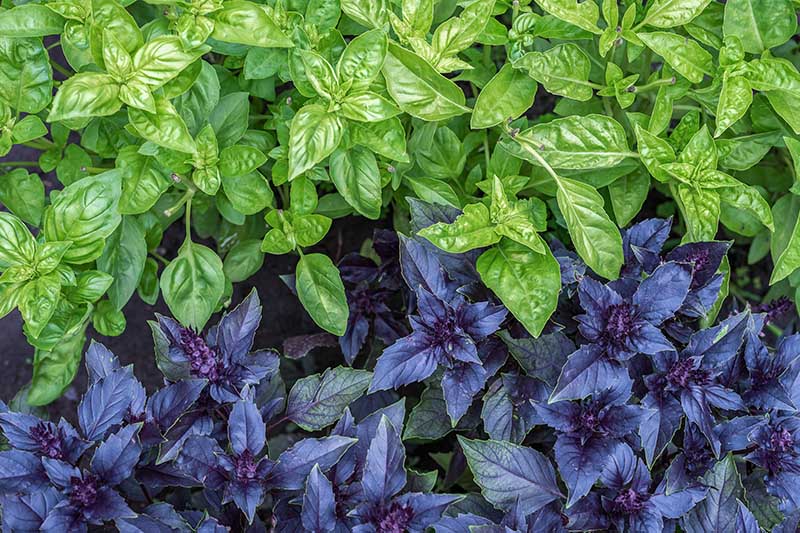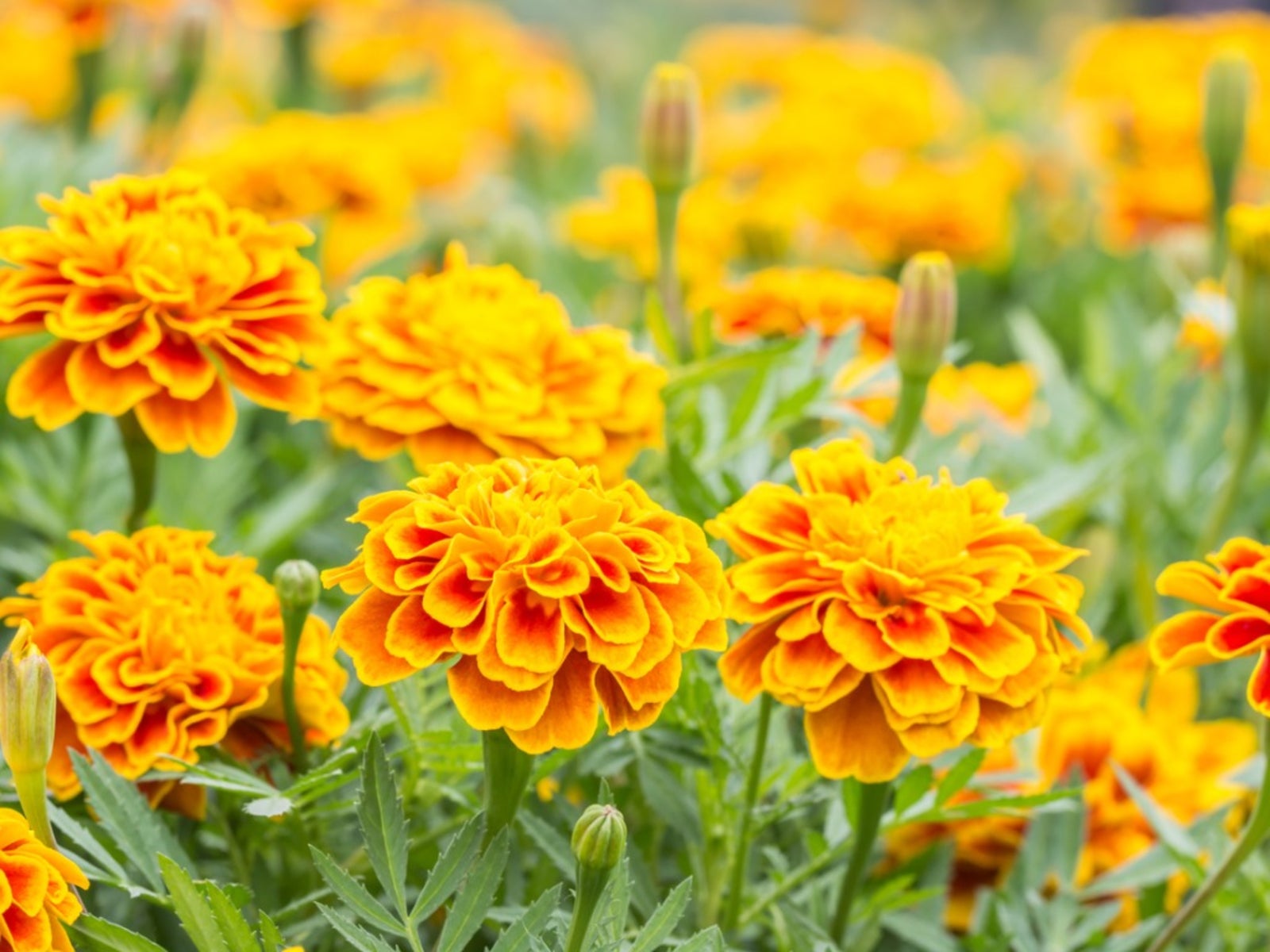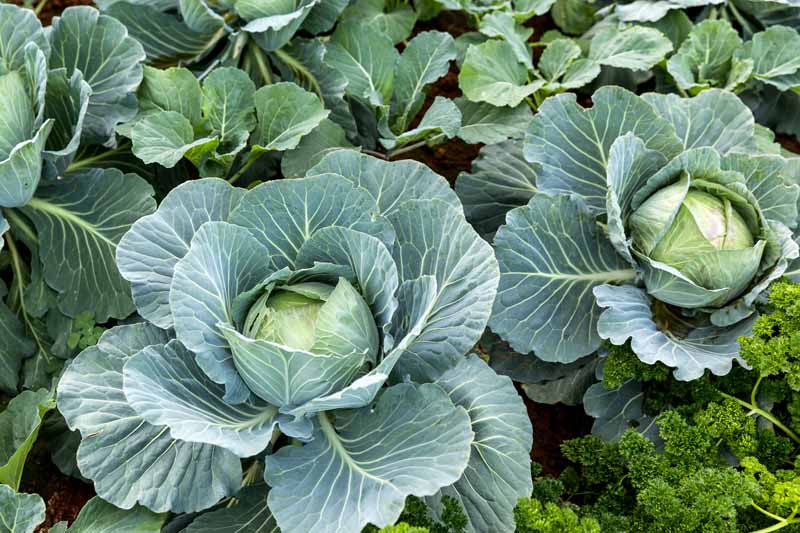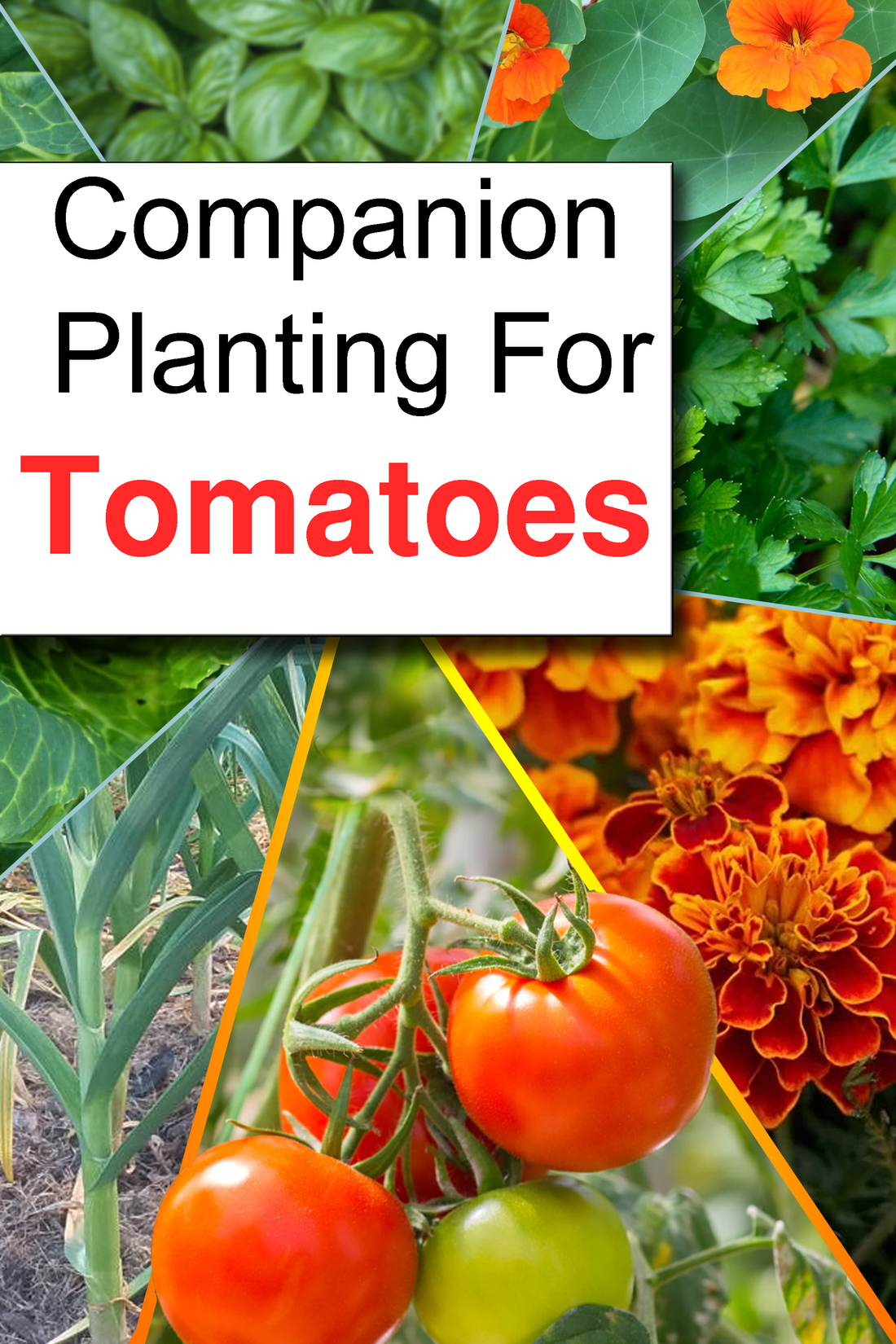Tomatoes are often the prized vegetable when it comes to home gardening. These plants can grow in many different shapes, colours, sizes, and flavours. Often the focus point to our gardens, tomatoes play a key role in our vegetable production. So it can come as quite a shock when our plants begin to suffer from pests and diseases. Wilting before our own eyes. Here are some plants you should grow amongst your tomatoes to help protect them, naturally!
Here are the DOs and Don'ts of companion planting with tomatoes!
Do:
Basil

Planting Basil with Tomatoes is one of the most common companion plant combination there is. There's the obvious benefit of having fresh amazing basil from your garden every day. Basil grows incredibly easy in the garden amongst the tomatoes, producing high yields! Basil is also an excellent way repel flies and hornworm from your healthy tomato plants. A must have for your garden!
Marigold

Marigolds have been planted with tomatoes for hundreds years, protecting plants from nematodes, hornworms, and even rabbits. Their bright colours and strong smell help to repel these harmful pests. They also offer a welcome addition of colour to the garden. Their wide range of colours only helps to increase pollination and the overall vibrancy of your garden. A sworn method for most veteran gardeners.
Garlic

Garlic is an often forgotten companion plant for tomatoes. Often grown on its own, in large patches. Garlic is a great choice to plant amongst tomatoes. Their different growth cycles, means the garlic will be ready by mid July and be out of the tomatoes way before it starts to set a majority of its fruit. Garlic is actually a popular companion plant for a lot of different vegetables, it incredibly strong smell is said to deter aphids, moths, Japanese beetles, snails, carrot root fly, spider mites. Some gardeners are known to plant garlic as a deterrent for rabbits aswell. In general garlic is an excellent friend to tomatoes, and provides an easy way to maximize space in the garden.
Parsley

Parsley is known to attract hoverflies, which in turn prey on those annoying aphids. Any plant that can help reduce the amount of aphids in your garden, is a plant you should consider adding. Ontop of being a great natural "pesticide" parsley is a popular herb to grow in your home garden. Give parsley a chance, and you may find it is an excellent companion for your tomatoes.
Chives

Chives produce a very similar affect to garlic. Deterring aphids and Japanese beetles with their strong fragrance. Some gardeners may also argue that chives enhance the flavours of the tomatoes, however that is still widely debated. Chives are a excellent addition to your herb collection and prove quite versatile and useful in the kitchen. An excellent member in the defense of our tomato plants!
Nasturtium
Nasturtiums are a flowering plant with hexagonal leaves, and bright flowers. These plants behave differently to all the others on this list. Nasturtiums have long been used as a trap crop for the backyard gardener. Although they have no immediate repelling properties, nasturtium can prove essential to the defense of your tomatoes, aswell as other fruiting vegetables. Studies have shown that trap crops can affectively prevent bugs from destroying flowering/fruiting plants. Aswell the large leaf growth on nasturtium provides an excellent ground cover, killing off weeds and providing a safe habitat for insects that will prey on any pests. As if that wasn't enough, nasturtium are prized for their beautiful blooming flowers, attracting gardeners and pollinators to them.
Don't
Cabbage (Brassicas Family)

Cabbage and all Brassicas for that matter are a common choice, often thrown in the garden where space can be afforded. While cabbage is an excellent crop to plant you must be mindful not to plant it near your tomatoes! Brassica in general are very heavy feeder, meaning they require lots of nitrogen and nutrients to grow. And will compete directly with the tomato plants for those nutrients. Is it often assumed that cabbage plants and brassica will stunt the growth of tomato plants, when planted together.
Eggplant (NightShade Family)

Possibly a surprising addition to the "Don't" list, eggplants are part of the popular night shade family. This consists primarily of Tomatoes, Peppers, Potatoes, and Eggplant. Specifically tomatoes, eggplants, and potatoes are very susceptible to early and late blight. Sometimes an unavoidable disease that will kill off the plant. It is often best to separate Tomatoes and Eggplant to help reduce the chance and or spread of this blight. However they can co-exist, but it is recommended that you space them anyways.
Corn

Corn may be a more popular "Don't" on this list. It is widely assumed you should not plant corn near tomatoes. Although harmless at first, the dangers that corn presents to tomatoes, and vise versa, is quite serious. At a glance corn and tomatoes are both heavy feeders and can directly compete for nutrients. However the biggest danger is the threat of Corn Ear Worm. The caterpillar of the moth Helicoverpa zea. Corn ear worm poses a significant risk to the fruiting tomatoes. This pest is also called the Tomato Fruit Worm, when targeting tomatoes. These pests work fast and can spread easily, it can sometimes be difficult to remove them once they begin to spread. It is best to reduce your chances and mitigate the risk by not planting corn near tomato plants.
What do you think of our list?
Do you Grow any of these in your garden?
Let us know down below in the comments, or get in contact with us on Instagram @RedHotSeeds

